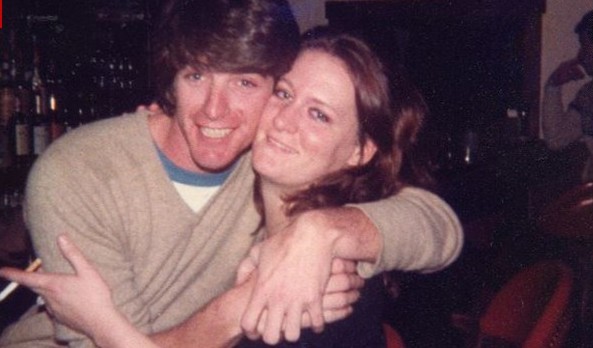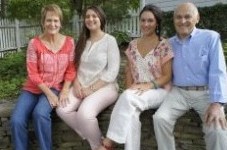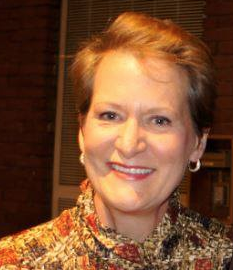The following story was originally published on CNN.com on Nov. 20, 2014, and is reprinted here with permission.

CNN Editor’s note: November 20 marks the Great American Smokeout, a day when the American Cancer Society encourages smokers to quit. Carolyn Choate is a TV producer and freelance writer from Nashua, New Hampshire. She quit smoking 28 years ago today. Choate first shared her essay on CNN iReport.
I’m a quitter and proud of it.
November 20 – the 37th anniversary of the Great American Smokeout — marks my 28th anniversary without a “cancer stick.”
It was 1986; I was 28 at the time and had smoked a pack a day since I was 15. That’s about 95,000 cigarettes! All these years later, writing that figure still makes me feel sick to my stomach. (Or should I say, lungs?)
Like a lot of teenagers in my day, I started smoking in high school. At the time, 1973, it was the cool thing to do and if there was anything I aspired to, cool was it. Sucked into the rip tide of popular culture, my juvenile-delinquent brain gravitated toward anything that questioned authority or was anti-establishmentarian, just like my heroes.
Too young to go to Woodstock, I could still bang out a Joan Baez tune on my guitar, recite enough lines of Allen Ginsberg’s “Howl” to prove I was cooler than cool and buy cigarettes. Nobody stopped me. A cigarette dangling from these radical lips was part of the image I had carefully crafted for myself.
Cancer? Didn’t give it a thought. And nobody at home mentioned it either. This, despite the fact that neither my mother nor my grandmother, with whom we lived, smoked. The war in Vietnam, the protests against it, the music, “Rowan & Martin’s Laugh-In,” the psychedelic drug scene, feminism and the whole counter-culture movement was way more intriguing than President Nixon’s war on cancer.
Only old people got cancer. Like my dear Uncle Frank, who died at 48 – an astonishingly young age, I later realized – of throat cancer, when I was in eighth grade. He started smoking at an even younger age than me.
My high school in the suburbs of Baltimore had a smoking lounge my junior year, 1975. It was outside the cafeteria, so students could smoke before school and during lunch break. Regardless, smoking didn’t stop in the bathrooms, and I have plenty of suspensions on my record to prove it. I was addicted.
Still, I had a responsible side. I worked like a dog at a pizza joint in town and felt I had earned the right to spend my money the way I saw fit. Heck, I was bringing home $52 a week and spending less than $3 on my nicotine habit, with cigarettes costing 35 cents a pack.
You know you’re hooked when, despite being bedridden with a terrible case of strep throat at 17, you’re craving a cigarette. Or when it’s 2 in the morning and you’re too tired to drive to 7-Eleven, so you scrounge through all your ashtrays, fishing for a butt with a modicum of tobacco left. Or you’re with friends and they light up, so you light up because that’s just good social courtesy, right? It was pathetic.
I started coughing my junior year of college, especially in the morning. I was an English major spending all my free time writing poetry and song lyrics. Those Marlboros got me through many all-nighters, typing papers on Sylvia Plath, John Berryman, Edgar Allen Poe.
The drinking age at the time was 18 and the college bar scene was hopping. Hell, we were just having fun, were young and invincible and had plenty of time to do “the adult thing” after graduation. I’d quit then.
But I didn’t. It was 1982 and I had moved to Vermont. I netted about $100 a week working at a department store, as the demand for poetry and song writers wasn’t what I had hoped. Depression and cigarettes made comfortable bedfellows. Compared to a lot of things I could be spending my money on, cigarettes were tame and cheaper, I kept telling myself.
But a major change was taking place.
When I heard that secondhand smoke could harm the people around me, it was hard to swallow. More than two-thirds of nonsmokers and half of all smokers believed smoking was hazardous to the health of nonsmokers, according to a 1978 Tobacco Institute report.
I was hurting myself and innocent bystanders. Sadly, it didn’t matter enough.
By 26, I was waking up regularly in a cold sweat, my pulse racing so fast I thought I was having a heart attack. Subsequent medical attention ruled out cardiac issues, but a chest X-ray revealed some significant “shadows” for a person my age. The doctor clicked his tongue annoyed, “You should give up smoking. It’s just not cool.”
For two years, I lived with the horrible burden of panic attacks, not knowing what caused them or how to stop them. Then one day, in a brilliant moment of clarity, I realized that I was scared to die. I was scared to die from the effects of smoking cigarettes. It was all so clear – I had to quit smoking.
I had read about the Great American Smokeout in the local newspaper. It was the following Thursday, November 20, 1986. My mother’s birthday. It was the nicest present I could give her – she didn’t think smoking was very ladylike – and the present I had to give myself.
 I quit cold turkey and never looked back. Sometimes that first year I would wake up with nightmares that I had started smoking again. I had to shake myself until I realized that I hadn’t and embrace, once again, my victory over dependence.
I quit cold turkey and never looked back. Sometimes that first year I would wake up with nightmares that I had started smoking again. I had to shake myself until I realized that I hadn’t and embrace, once again, my victory over dependence.
Twenty eight years later, I’ve lived a second life with a wonderful marriage, two beautiful daughters, and many incredible adventures. I’ve never once craved another cigarette or had a panic attack. At 56, I’m still finding out just how cool life really is.
To comment on the CNN story, or ask a question of the author, click here.
Carolyn Choate lives and works in Nashua, NH. She is a longtime TV reporter for WYCN tv13 and food blogger on Manchester Ink Link.








